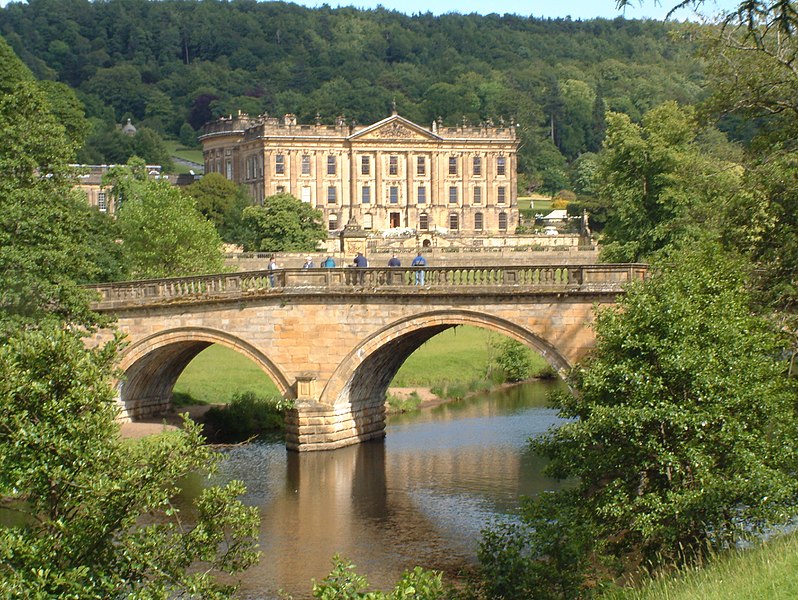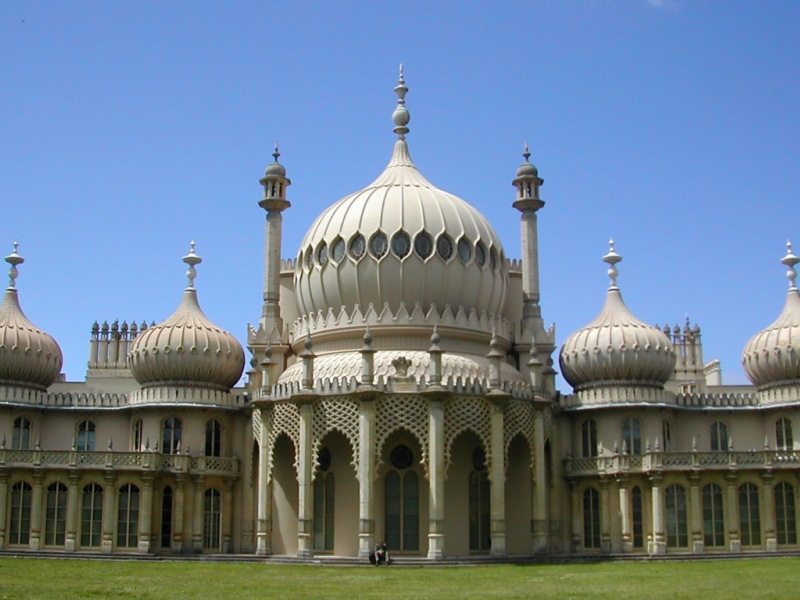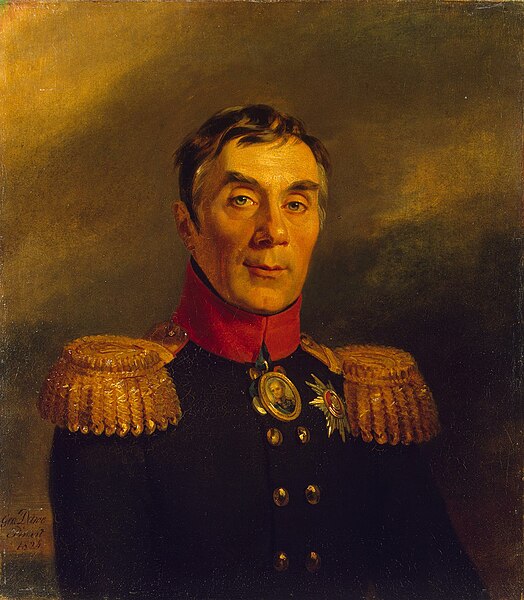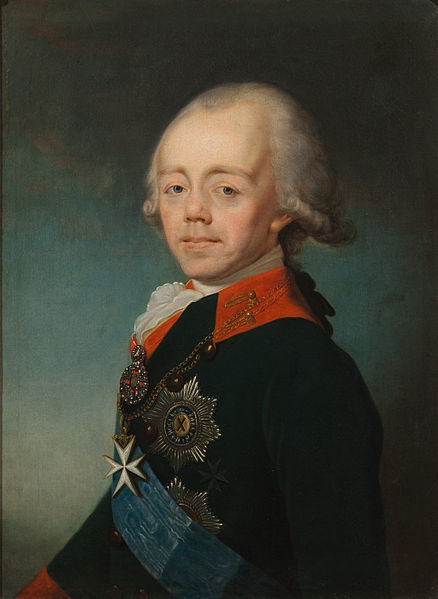 |
| Queen Louise of Prussia |
Prussian Interlude
In 1808 Christopher applied to transfer to the diplomatic
core and the following year Alexander sent Christopher to escort fellow
monarch, and unwilling ally of the French, King
Frederick William III and his wife Queen
Louise of Prussia[i] to St Petersburg for a
visit. Queen Louise took a liking to Christopher and later in the year
Alexander sent Christopher as Ambassador to Berlin. Dorothea accompanied
him and was deeply unimpressed by Berlin society and the king who had;
‘Little
strength of mind, and is as obstinate as a beast. He has been advised not to
adopt too friendly an air towards us, and he follows this advice very carefully
and even goes beyond it.’[ii]
Life in Berlin was boring according to Dorothea and she fell
ill. But boredom was not to last for long. The death of the much admired Queen
Louise, in July 1810, aggravated the Lievens’ task. But by the end of the year
Alexander had extracted himself and the Prussians from Napoleon’s grip; the two
countries planned to join with Britain in an anti-French alliance. In response Napoleon
now turned his eye on Russia.
London
I
n the spring of 1812 Napoleon launched the invasion of
Russia; the Leivens left Prussia on 30th June 1812 as the French
crossed the Nieman.
Christopher was appointed Ambassador to the Court of St James
in London. The family’s arrival in London made a great impact; Britain had been
virtually cut off diplomatically for five years.
 |
| The Grand Armee crosses the Nieman |
London’s high society was fascinated by the Lievens and at
the first ball Dorothea and Christopher attended, Lady
Jersey, mistress of the Prince
Regent, climbed onto a chair to get a better look at the ‘white bear’. Dorothea was unimpressed
with English society, so different from Russia, and her reserve put off those
who wished to get to know the Russian ambassadress. Lady
Granville wrote;
 |
| Lady Granville |
‘It
is everything that makes a person amiable which is wanting in her – gentleness,
sweetness, cheerfulness, abnegation de
soi. There is a great deal of decorum and propriety and I cannot believe
any ardent feelings under it.’[iii]
Naturally the Lievens were extremely interested in the
campaign back home, information about which seemed so much more vital and
important than the peaceful country they found themselves in. Although England
had been at war almost continually since 1793[iv], the fighting had not
ravaged the English countryside and Dorothea viewed the English countryside as
beautiful but the English themselves as sadly unemotional.
Dorothea was fascinated and repelled by the antics of the
elected members of parliament in the House of Commons. She was used to rule by
an autocratic monarch and the idea of devolved rule was repugnant to her.
Dorothea was, however, very much interested in the role of women in politics able
to make good use of their influence. Dorothea, with her taste for the great and
good, found the Whig grandees more to her taste than the Tories.
Ambassadress
 |
| Chatsworth |
The Russian embassy in Harley Street[v] was not large enough to
accommodate the Lieven family so they took a white house[vi] at Streatham Park[vii].
‘We
are living very quietly, seeing people every day, for the distance from town is
so trifling that we are easily reached, and our house is large enough to house
a number of guests.’[viii]
While Christopher was welcomed by the politicians, Dorothea
was finding it harder to break into society circles, much to the disgust of Count Nesselrode, the
Czar’s State Secretary. But Dorothea was to find a friend in Harriet Granville,
a sister of the Duke
of Devonshire. Harriet took her new friend to view Chatsworth, which
Dorothea approved of as ‘an establishment
worthy of an emperor.’
Christopher and his staff were successful in obtaining
subsidies from Castlereagh,
the Foreign Secretary who persuaded the Commons to pay for Prussia to raise an
army of 80,000 to fight against Napoleon; the Russians agreed to put 150,000
men on the field.
 |
| Carlton House |
The Quadruple Alliance, between England, Russia, Austria and
Prussia, came into action in March 1814 and within weeks Napoleon had abdicated[ix]. Dorothea drove to see
the celebratory illuminations[x] at Carlton House.
A Visit from the Czar
 |
| Grand Duchess Catherine |
The Regent’s charm offensive failed miserably; he arrived at her suite on time, to find the Grand Duchess still in the hands of her maid. Dorothea had to explain Catherine’s non-appearance. Things went downhill at the formal dinner at Carlton House that evening; Catherine, wearing mourning for her late husband[xiii], exclaimed that the music made her ‘vomit’.
Catherine went out of her way to annoy the Regent, socialising
with the Whigs and the Regent’s estranged daughter Charlotte;
she also insisted on attending men only dinners much to the horror of society
at large. It was not until Catherine threatened to visit the Princess of Wales[xiv] that Christopher put his
foot down; he threatened to resign. From then on Catherine refused to deal with
Christopher and saw only Dorothea, who became the sole link between the embassy
and the Czar’s favourite sister.
.jpg/470px-Princess_Charlotte_of_Wales_by_Dawe_(1817).jpg) |
| Princess Charlotte |
‘It
was there that I entered on my diplomatic apprenticeship…..I disputed the
invitations [to dine with Catherine] step by step and I often managed to
exclude favourites and get people put in whom she greatly disliked…..never did
she speak a word to him [Christopher]. These dumb dealings went on for two
months, and she only began to speak to him again just before the emperor’s
coming.’[xv]
 |
| Lady Hertford |
Dorothea was instrumental in ensuring that Alexander did not
meet with Caroline of Brunswick and frustrated his attempt to meet with King
George. Nevertheless Alexander was a social success and Lady Jersey threw a
ball in his honour on 15th June.
Entrée into Society
Dorothea’s efforts to smooth down the differences between
the two rulers were appreciated by the Regent. Dorothea and Christopher were
given the entrée to his intimate entertainments at his Pavilion in Brighton. Aware of her
dislike of late nights the Regent condescended to allow her to leave at 11.pm.
while Christopher stayed on.
 |
| Royal Pavilion |
On one such departure Dorothea had the misfortune to be
importuned by a drunk Duke of Clarence. She managed to divert him by talking of
the future of Hanover. The following day Dorothea informed a highly diverted
Regent of her escape.
‘[The
Regent] laughed like a madman. I have never seen him so diverted.’[xvi]
Christopher however was less amused.
The Regent’s favour, allied with the Czar’s visit, opened
the doors of high society to Dorothea. Dorothea’s friends were the Whigs, she
found the Tory politicians boring and both Lord
Liverpool, the Prime Minister, and Lord Castlereagh lacked fashionable
wives. Lady
Castlereagh was eccentric in her dress[xvii].
Lord Granville had acquaintance with many of the Lievens
friends in St Petersburg, having made a trip to Russia. Harriet Granville
introduced Dorothea into the Devonshire clique, getting the Lievens invited to
a grand dinner at Devonshire
House to celebrate the victory at Waterloo.
 |
| Sadler's Wells theatre |
‘My
children are growing apace, are learning somewhat and are as thorough little
scamps as you could wish. Paul is the leader of all the disturbances at the
school where he is….he boxes in a ring, he makes as much as much noise as a
regular John Bull and….is extremely courageous.’[xviii]
While Paul was home for the holidays Dorothea took the boys
out to the Sadler’s
Wells theatre to see the Panorama of
the Island of Elba.
Bibliography
The Princess and the Politicians – John Charmley, Penguin
Books 2006
Captain Gronow – Christopher Hibbert (ed), Kyle Cathie Ltd
1991
Wellington – Christopher Hibbert, Harper Collins 1997
Paris Between Empires – Philip Mansel, Phoenix Press
Paperback 2003
The Life and Times of George IV – Alan Palmer, Book Club
Associates 1972
The Russian Empire – Hugh Seton-Watson, Oxford University
Press 1988
Arch Intriguer – Priscilla Zamoyska, Heinemann Ltd 1957
[i]
Napoleon had overrun Prussia and after Tilsit the situation deteriorated.
[ii]
The Princess and the Politicians - Charmley
[iii]
Ibid
[iv]
The formation of the first anti-French coalition
[viii]
Arch Intriguer - Zamoyska
[ix]
11th April 1814
[x]
Fireworks
[xi]
Catherine had already met the Duke of
Cumberland, later William IV, in Holland where she had refused his offer of
marriage
[xii]
In 2014 the relative: historic standard of
living value of that income or
wealth is £13,770.00 economic status
value of that income or wealth is £249,200.00 economic power value of that income or wealth is £831,300.00 www.measuringworth.com
[xiv]
Caroline left England in August 1814 having negotiated an agreement with
Castlereagh
[xv]
Arch Intriguer - Zamoyska
[xvi]
The Princess and the Politicians - Charmley
[xvii]
She liked to wear her husband’s garter ribbon in her hair
[xviii]
The Princess and the Politicians - Charmley

.jpg)







.jpg/800px-Catherine_Palace_%26_Cameron_Gallery_(Premazzi).jpg)